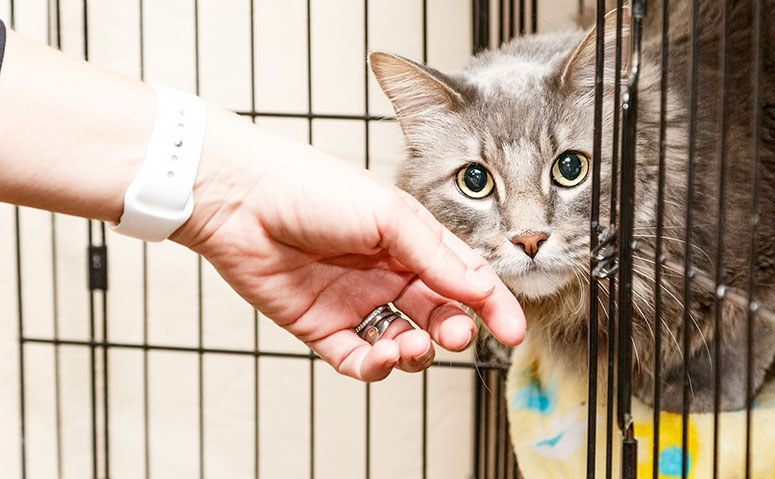Table of Contents
With the spread of COVID-19, and the resulting closure of many pet shelters and rescues, these organizations are relying more on people to foster a dog or cat during this trying time.
Pet rescue organizations are facing a shortage of volunteers as people hunker down and self-quarantine due to the Coronavirus. Most shelters in quarantine areas are only allowing adoptions by appointment, so fewer pets are getting adopted out. And some shelters are seeing a surge in pets being surrendered because of job losses or illness and an inability to take care of them.
For anyone who is in a position to adopt, it’s an ideal time to do so as many people are working from home and can dedicate more time to a new pet.
Those who can’t adopt can still help by fostering a dog or cat until shelter operations can return to normal. Fostering a pet guarantees the animal will be safe and sheltered during these uncertain times. Some cities – Los Angeles and New York City — are reporting a surge in people fostering, but in other places, they are desperately needed.
If you think fostering a dog or cat is for you, email, call or contact your local shelters via their website or company Facebook pages to ask how you can help.
How to Foster a Dog or Cat
If you’re considering fostering a dog or cat, we have a few tips:
- Ask yourself if fostering a pet is right for you– Are you going to be home a lot during the short-term to look after a dog or cat that may need extra special attention and care? Do you have another pet who would enjoy a friend? Do you know what you can handle and what you can’t, such as specific dog breed or size? Do you believe in fostering as a cause? If you answered all of these confidently, you’re likely ready to become a foster pet parent – and will likely fall in love with every dog or cat that comes through the door.
- Have a good line of communication with your shelter– If you’re ready to take the next step toward fostering dogs or cats, get in touch with a local shelter and find out about their particular needs. Clear communication with the shelter is key to everyone’s happiness, including the dog. Reach out to the organization beforehand to see if they are open or if you need to set up an appointment.
- Ask the right questions about your potential foster dog or cat – Too often, prospective pet parents fall in love with a sweet face and forget to ask questions about the pet’s history, temperament, and more, which can help ensure the two of you are a good match. The questions to ask will depend on your situation, but some good starters include:
- Do you know where he/she was before this?
- How would you describe the dog or cat’s personality?
- How old is the dog or cat?
- Does he/she get along with other dogs or cats?
- Does he/she get along with children?
- Does he/she require any other special care?
- How much exercise per day would you recommend for this dog?
- Does he/she get along with other pets?
- Does he/she have any medical issues?
- What sort of training would you recommend?
- Does this dog or cat have any behaviors that should be corrected or trained out?
- What else should I know about this dog or cat?
- Be sure to puppy- or cat-proof your home– Puppies, kittens – and even older dogs and cats who are introduced to new homes – are curious, so it’s always smart to take the time to dog- or cat-proof your home. This is the same concept as preparing your space for a baby, except you’re examining every square inch of your abode to ensure that it’s safe for your favorite fur buddy. Your checklist should include:
- Investing in a heavy-duty, lidded trash can
- Screening for poisonous plants
- Keeping toxic items out of reach
- Concealing electrical cords
- Removing all possible choking hazards
- Securing your backyard
- Consider other ways you can help– It’s OK to decide that you’re not quite ready to be responsible for a new pet right now. There are other ways you can help:
- Donate money: Since you may be spending less money during this time of lockdown, you may have some extra funds. Consider making a donation to help your local shelter.
- Volunteer: You might not be able to do this right now but consider volunteering at your local shelter or rescue organization in the future. There are many skills that are needed; from electricians to marketing to dog walking.
- Spread the word: Like and follow your local shelters and rescue organizations on social media and invite your friends to do so as well. Engage by commenting and sharing their posts to let more people know of pets who need a home.
Unfortunately, in times of crisis, as we saw in the aftermath of Hurricane Katrina and the Great Recession, people are often tragically forced to give up their pets. What better time than now to take in a pup or kitty who needs some unconditional love – you could save their life, and they could change yours, too.








